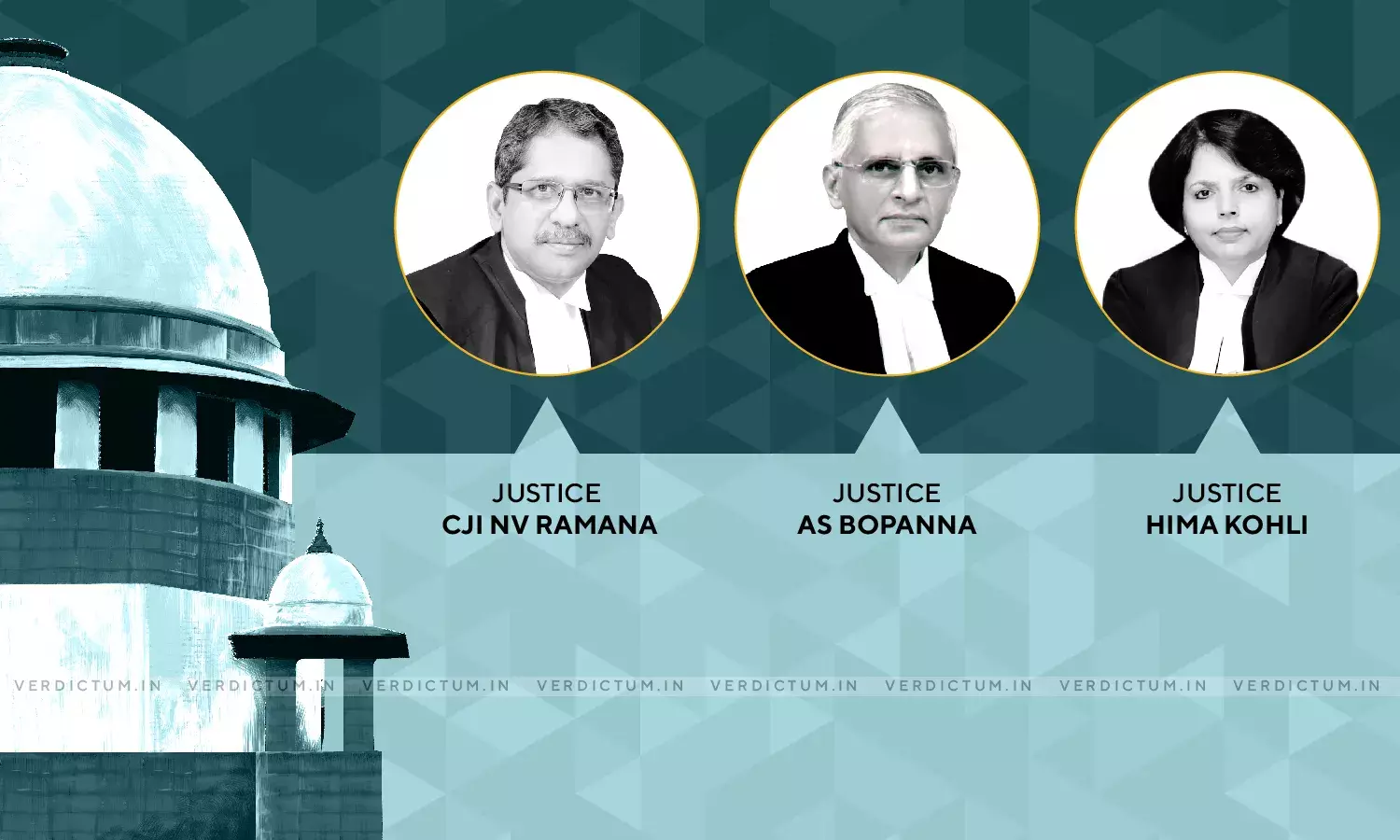APCS Act - Person Seeking Relief Should Approach Courts With Clean Hands: Supreme Court

A three-judge Bench of CJI NV Ramana, Justice AS Bopanna, and Justice Hima Kohli while adjudicating upon an appeal filed under the Andhra Pradesh Cooperative Societies Act (APCS Act) has held that a person seeking relief from the Court should approach the Court with clean hands, as per well-established legal norms.
The Court also held that there was no document on record to prove that the plot in dispute was reserved for the parking area in the layout plan nor did it vest in the hands of the Municipal Corporation along with roads, drains, and open areas for the purpose of retaining it as such and maintaining the same.
Senior Counsel Mr. B. Narayana Reddy appeared for the Appellants, Senior Counsel Mr. K. Ravindra Kumar appeared for Respondent No. 5, and Counsel Mr. Annam D.N. Rao appeared for Respondent No. 1 before the Court.
An appeal was preferred against an order of the Andhra Pradesh High Court which allowed the Writ Petition of the Respondent and quashed the award passed by the Divisional Cooperative Officer, Cuddapah, who acted as an Arbitrator in deciding a dispute raised under Section 61(1)(b) of the Andhra Pradesh Co-operative Societies Act, 1964.
In this case, the Government of Andhra Pradesh allotted land to the Cooperative society, from which plots were to be allotted.
The dispute is regarding two plots that were allotted to two Respondents, which the Appellant alleged were reserved as a parking area in the layout plan. The Plaintiffs in the case were not members of the Welfare Association, but rather people who were interested in buying the plots themselves and using them as a parking area.
The Divisional Cooperative Officer passed an award in favor of Plaintiff and denoted the plot as a 'parking area.' When the Respondent filed an appeal before the Andhra Pradesh Co-operative Tribunal, it confirmed the award passed by the Officer.
The Respondent thereafter approached the High Court by way of a Writ Petition. The High Court accepted the same and ruled in favor of the Respondents. It set aside the order of the Divisional Cooperative Officer and the Cooperative Tribunal.
Hence, the Appellants approached the Supreme Court.
The Court noted Section 61 of the APCS Act, which allows the society to approach the co-operative Officer when there is a dispute amongst the members of society.
Further, the Apex Court held, "Plaintiffs No.4 and 5 however seek to explain their conduct by stating that they had sought to purchase the plot and retain it as a parking area. Such an explanation cannot be accepted on face value. If in fact a plot was earmarked in the layout plan as a parking area, it is the bounden duty of the authorities concerned to maintain the same as such."
"It is difficult to fathom that a private individual who owns shop premises in the layout would invest money and purchase the vacant plot to retain it as a parking area for the benefit of the general public," the Bench opined.
The Court observed that the Plaintiffs in the earlier proceedings were not entitled to invoke the provisions of the APCS Act, being non-members. They were in-fact rival claimants and competitors. The High Court was thus justified in its conclusion.
Additionally, the Court held that a claim would arise under the Act or under the Civil Procedural Code only there was material on record to show that the area was an open are and had to be retained as such. However, no such document has been placed on record.
"Secondly, the person seeking relief from the Court should approach the Court with clean hands, asper wellestablished legal norms. In the instant case, plaintiffs No.4 and 5 had made attempts to secure allotment of the same plot allotted to the defendant No.2, in their favour though presently, it is sought to be explained that it was to be retained for parking, which, as already indicated above, is an explanation which cannot be accepted. Therefore, the challenge by the said plaintiffs to the allotment made in favour of the defendant and the same cause being supported by the other plaintiffs, cannot be considered to be bonafide," the Bench observed.
The Court also held that as per the Report of the District Judge, Kadapa, it nowhere indicated that the plot in question was earmarked or reserved as a parking area. On the other hand, it was referred to as the area earmarked for commercial purposes. In this context, the Court noted -
"Hence, the said report coupled with the discussion by the Divisional Cooperative Officer extracted supra, will disclose that it was not earmarked as a parking area in the layout plan but was only deduced so by the Divisional Cooperative Officer in the course of his discussion in the award."
Accordingly, the Court dismissed the appeal.
Click here to read/download the Judgment

